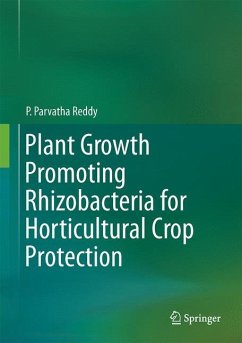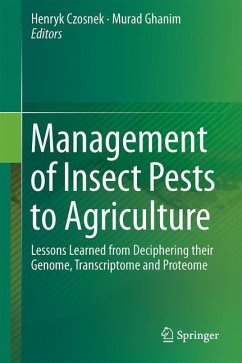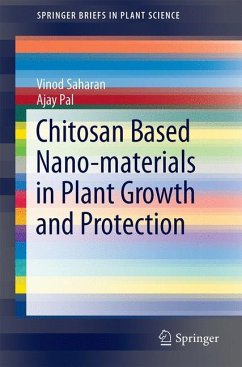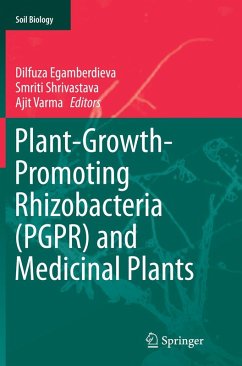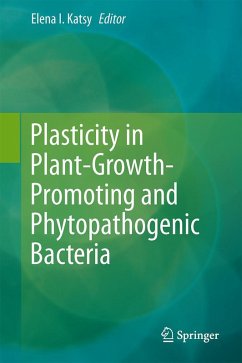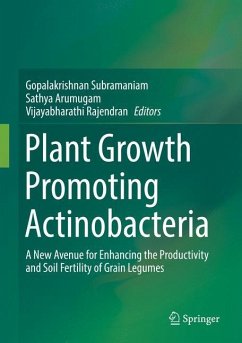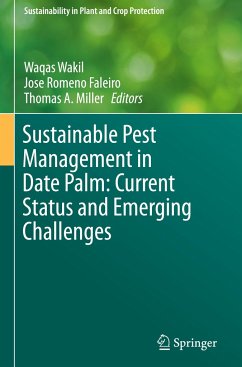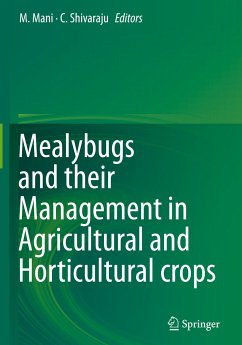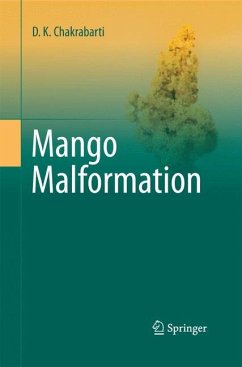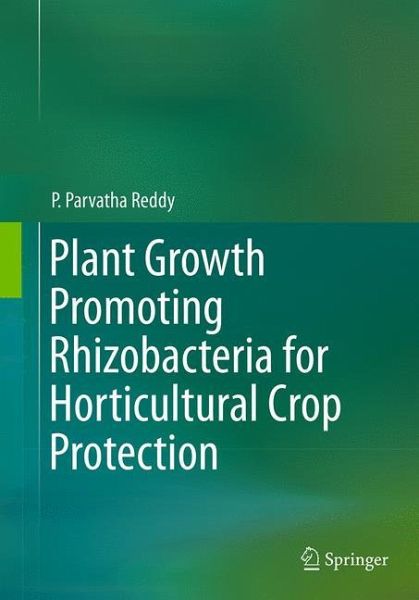
Plant Growth Promoting Rhizobacteria for Horticultural Crop Protection
Versandkostenfrei!
Versandfertig in 6-10 Tagen
136,99 €
inkl. MwSt.
Weitere Ausgaben:

PAYBACK Punkte
68 °P sammeln!
The use of synthetic pesticides has undoubtedly resulted in the achievement of increased crop production. However, in recent times, there has been a considerable pressure on consumers and farmers to reduce or eliminate the use of synthetic pesticides in horticulture, since fruits and vegetables are consumed afresh. This concern has encouraged looking for better alternatives which are cheaper and eco-friendly than synthetic pesticides. It is well known that plant growth promoting rhizobacteria (PGPR) play an important role in maintaining crop and soil health through versatile mechanisms. There ...
The use of synthetic pesticides has undoubtedly resulted in the achievement of increased crop production. However, in recent times, there has been a considerable pressure on consumers and farmers to reduce or eliminate the use of synthetic pesticides in horticulture, since fruits and vegetables are consumed afresh. This concern has encouraged looking for better alternatives which are cheaper and eco-friendly than synthetic pesticides. It is well known that plant growth promoting rhizobacteria (PGPR) play an important role in maintaining crop and soil health through versatile mechanisms. There are two main outcomes or effects from beneficial microorganisms: enhanced plant growth and crop protection, both of which represent the two main constraints to agriculture.
The information on biomanagement of pests (insect and nematode pests, fungal, bacterial and viral/phytoplasma diseases) of horticultural crops (fruits, vegetables, plantation, spice, tuber, ornamental,medicinal and aromatic crops) using PGPR is very much scattered. There is no book at present which comprehensively and exclusively deals with the above aspects on horticultural crops. The present book deals with biomanagement of pests in horticultural crops in detail using PGPR. The present book deals with biomanagement of pests in horticultural crops in detail using PGPR. The present book is divided into six sections. The first section deals with the importance of PGPR including introduction, potential role of PGPR in agriculture, genera of PGPR, disease management, nematode management, insect pest management, integrated pest management, mechanism of biocontrol, mass production, formulation, delivery and commercialization. Pest management in tropical, sub-tropical and temperate fruit crops is dealt in Section II. The third section deals with pest management in Solanaceous, bulbous, Malvaceous, Cruciferous, Leguminous, Cucurbitaceous, leafy and root and tuber vegetable crops. Pest management in plantation and spice crops is in Section IV. Section V deals with pest management in ornamental, medicinal and aromatic crops. The last section deals with a road map ahead including challenges, future prospective and conclusions. The book is extensively illustrated with excellent quality photographs enhancing the quality of publication. The book is written in lucid style, easy to understand language along with adoptable recommendations involving eco-friendly components of IPM.
The information on biomanagement of pests (insect and nematode pests, fungal, bacterial and viral/phytoplasma diseases) of horticultural crops (fruits, vegetables, plantation, spice, tuber, ornamental,medicinal and aromatic crops) using PGPR is very much scattered. There is no book at present which comprehensively and exclusively deals with the above aspects on horticultural crops. The present book deals with biomanagement of pests in horticultural crops in detail using PGPR. The present book deals with biomanagement of pests in horticultural crops in detail using PGPR. The present book is divided into six sections. The first section deals with the importance of PGPR including introduction, potential role of PGPR in agriculture, genera of PGPR, disease management, nematode management, insect pest management, integrated pest management, mechanism of biocontrol, mass production, formulation, delivery and commercialization. Pest management in tropical, sub-tropical and temperate fruit crops is dealt in Section II. The third section deals with pest management in Solanaceous, bulbous, Malvaceous, Cruciferous, Leguminous, Cucurbitaceous, leafy and root and tuber vegetable crops. Pest management in plantation and spice crops is in Section IV. Section V deals with pest management in ornamental, medicinal and aromatic crops. The last section deals with a road map ahead including challenges, future prospective and conclusions. The book is extensively illustrated with excellent quality photographs enhancing the quality of publication. The book is written in lucid style, easy to understand language along with adoptable recommendations involving eco-friendly components of IPM.





